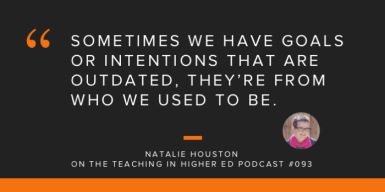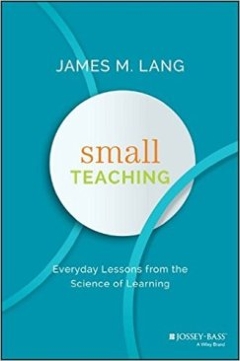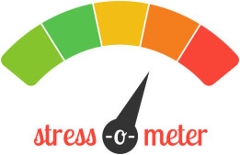Meriam Library(opens in new window)
Faculty Affairs and Success (FAAF)(opens in new window)
Accessible Technology Services (TEIN)(opens in new window)
Stress seems everywhere this time of the semester. The academic year is close to an end which means student concerns about grades and graduation, too many meetings crammed into the day, celebrations that sometimes feel like obligations, and this year we are all making sense of the strike and what it might mean for ourselves and our students. Speaking of students, the stress of the end of the year can be even greater for them as they deal with a host of transitions many of us moved on from years ago.
I once worked with a graduate student whose motto was “low stress-high success” and while I have never been able to live the slogan quite how he did, the merits of limiting stress in our lives are well documented and substantial.
This week’s tips for reducing stress are brought to you by the School of Nursing. They authored the attached sheet and want to encourage you to stop by their table outside Butte Station this week to pick up a stress kit. Please encourage your students to stop by as well.
Finals are just around the corner and many of us are sprinting/struggling to the finish line. In many courses grading is the thing standing between us and a change of pace during the summer. There have probably been semesters when you moved through grading efficiently and others when you are wondering how serious those requirements on timely grade entry from the Office of the Registrar really are. Those different experiences were probably driven by different habits. Take a minute to think of your best and worst grading habits.
My best habit has always been preparation. This was the time in the semester when I would be motivated to focus in the evenings and clear my schedule of lingering grading, manuscripts in need of attention, and other projects. This allowed me to focus on grading final papers or exams when they came in without having other work to do. When I executed well I would be done with grading on Wednesday of final exam week. My worst habit was the mini-reward. I would be proud of myself for grading one or two papers and take a minute to read ESPN or check facebook, then that minute turned into 10, then I needed a cup of coffee, soon 30 minutes had passed without additional progress.
Despite commonly held beliefs, you do not have enough time to create a new habit before final exams and papers come in, but you do have time to get started. The least we should do is commit to being conscientious of our habits so we can make note for the future. This can be a challenge as habits, by their nature, are often automatic.
This tip was inspired by one of my better habits, listening to the Teaching in Higher Ed podcast by Bonni Stachowiak and her episode on habits.

Her guest Natalie Houston is a regular contributor to the Chronicle and said something
that hit home for me, “habits save us tremendous time and energy, but they can also lead us to doing a lot of things mindlessly.” It made me think about the things I do mindlessly which are not that productive.
One of my friends once shared he was always excited in the Spring if he was teaching the same course in the Fall and would tell himself “Great! I can redesign this course now that I know all the things wrong with it.” Then, after a summer of manuscript revision or house projects he would say to himself “Thank goodness I am teaching that same course and don’t have to prep anything new.”
The prospect of course revision is often daunting, even when we know there are problems. Decisions about how things are now were mostly made with good intentions and the backing of good research. The thought of discarding all that and starting over seems like too much. Truth be told, it probably is.
James Lang certainly thinks so, and that is the starting point for his work on Small Teaching.

He makes a strong case for incremental change and gives powerful, grounded suggestions for how to improve teaching without overwhelming yourself. If the book is too much, I would recommend his companion pieces in the Chronicle of Higher Education earlier this year about the first five minutes of class and the last five minutes. To tease one great suggestion I will offer this excerpt from the last five minutes piece
“Finish the last class of the week five minutes early, and tell students that they can leave when they have identified five ways in which the day’s material appears in contexts outside of the classroom. You’ll be amazed at how quickly they can come up with examples when this activity stands between them and the dining hall.”
The big picture take away from Small Teaching should be that course revision can be as simple as a trip to the Technology and Learning Program to learn about better grade book integration or making sure group work in your class is always followed by a debrief, it does not have to be a full scale tear down and start over.
Earlier this year a Tuesday Tip on Trigger Warnings elicited strong response from many of you. Given the wide interest I want to be sure you are aware of Jonathan Rauch’s presentation on Wednesday. This award winning scholar’s thoughts on free speech are sure to provoke discussion and his talk should not be missed.
